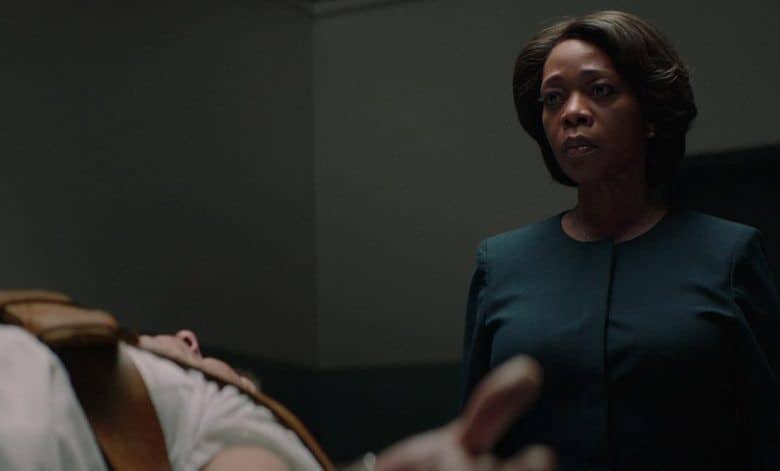Read also:
How to Watch FX Live Without CableHow To Watch AMC Without CableHow to Watch ABC Without CableHow to Watch Paramount Network Without Cable(This dispatch is part of our coverage of the 2019 Chicago International Film Festival.)
As my colleague Matt Cipolla pointed out yesterday, with fall in Chicago comes the beginnings of the bitter Lake Michigan chill, throngs of people in Canada Goose jackets, and the Chicago International Film Festival. We’re taking turns offering up capsule reviews of the many offerings on display at the fest, as we cram through as much cinema into our gullets as we can, storing it all for the long winter.

It’s a good thing, too, because there’s plenty of joy (and tears) to be found in today’s selections. First, I saw The Truth, the latest from one of Japan’s grand humanists, Hirokazu Kore-eda. His Shoplifters last year was one of 2018’s best, most vibrant films, chiefly due to Kore-eda’s incredible understanding of human nuance and deep love for his characters. Here, in his first film outside Japan, he brings that same sensibility to the tale of Fabienne Dangeville, an aging prima donna actress (a sublime Catherine Deneuve), having just written her memoir, wrestling with the ghosts of the past. She’s irascible and endlessly passive-aggressive to her visiting daughter (Juliette Binoche), a screenwriter, and her clueless American actor husband (Ethan Hawke). What’s more, she bristles at her next role, a supporting turn in a science-fiction drama opposite a young actress (Manon Clavel) who reminds her in far too many ways of a now-dead contemporary she was endlessly compared to, including by herself.
As Kore-eda films go, The Truth slots nicely into a kind of Claire Denis tradition (in no small part due to Binoche’s presence) of grounding its characters in, well, truth, while also acknowledging the immense gravitational pull of the big names he’s pulled for this picture. Deneuve’s role works in conversation with Deneuve the movie star, interrogating her status as one of the last movie stars of a bygone era with tremendous grace. And yet, Kore-eda flits between Fabienne’s internal journey and that of Binoche’s Lumir, an eminently practical woman nonetheless exasperated by (and in some ways, envious of) her film star mother. Much of The Truth involves the two of them reconciling the fuzzy nature of memory with reality, and it’s in these moments when the movie shines. It’s a bit weightless when it comes to its supporting cast (Hawke et al. get little to do, and one wishes we learned more about Manon’s seeming perfection), but Kore-eda’s work remains infinitely endearing, even when his trade is plied across the pond.

From there, I moved from winsome wistfulness to raw emotional nerve with first time writer/director Chinonye Chukwu‘s Clemency, an unflinching drama about capital punishment that thrusts Alfre Woodard into the role of Bernadine Williams, an overworked, overcommitted Death Row prison warden who buckles against the emotional and psychological weight her job takes on her. She’s the kind of administrator who deeply cares about her prisoners’ welfare, but the inhumanity and bureaucracy of managing human beings drives her to alcoholism and a worsening relationship with her frustrated husband (Wendell Pierce). Fresh off the scrutiny of a botched execution (which opens the film in haunting, terrifying immediacy), Bernadine must now move on to the imminent execution of inmate Anthony Woods (Aldis Hodge), as his lawyer (Richard Schiff) and a mass of public protests hope to grant him clemency by the governor’s office in the nick of time.
Message films about the death penalty are nothing new — Dead Man Walking is the poster child, and even Trial By Fire earlier this year offered a marginally rewarding take on the material — but Clemency feels like an entirely new, rawer beast. Chukwu’s eye is unflinching in its portrayal of the sheer nihilistic anguish that the criminal justice system inflicts on people, black and brown bodies especially. While much of the film’s stakes ostensibly lean on whether or not Woods will be granted clemency, neither the film nor the characters hold out much hope. Woodard’s fantastic as usual – awards consideration isn’t out of the question – but I fear Hodge’s incredible vulnerability, those despairing moans and dazed glances as the reality of execution sets in, will get unjustly ignored. It’s a rough watch, but rewarding for its emotional honesty.

Meanwhile, we stay on the oppression train with Tremors (Temblores), which I got to see previously during my time as a Narrative Features Judge for this year’s OUTshine Film Festival in Fort Lauderdale (which is currently running!). Jayro Bustamante‘s haunting queer drama follows Pablo (Juan Pablo Olyslager), a respected family man in Guatemala who, in the film’s opening minutes, is exposed to his family as a homosexual who has fallen in love with another man. Drowning in the evangelical Christian environment of his community and the judgment of his family, Pablo is essentially forced to undergo a kind of radical conversion therapy to cure him of his ‘sickness.’
A lot of queer narratives focus on the oppression their conservative culture inflicts on them (see also Boy Erased) but Tremors rumbles with a righteous fury on behalf of its subject. Olyslager shines as a man torn between expectations and reality, deftly charting the trajectory of a man who must stifle the truest parts of himself to fit into the expectations of an unforgiving society. While his journey, and his conflicting relationship with Francisco (Mauricio Armas Zebadúa), who’s much more out and proud than he, are incredibly gripping, most fascinating are Olyslager’s occasional detours to show the family’s reactions to this. His wife Isa (Diane Bathen) and parents remain trapped in cycles of blaming each other for their failings towards him, and one poignant scene between Pablo’s two young boys highlights the absurdity of the anti-gay rhetoric they absorb by osmosis. It’s emotionally brutal, even in the ostensible defeats of its final moments; yet, to dig into the truth of homophobia’s failings, one has to take them to such tragic conclusions.

But enough about oppression, death, and tragedy: let’s talk about ejaculating cacti! The Twentieth Century, from Canadian experimental filmmaker Matthew Rankin, is a riotously ahistorical fever dream that has to be seen to be believed. Best as I can describe in the humble confines of a capsule review, The Twentieth Century is an anti-biopic of sorts, re-imagining the story of 20th-century Canadian prime minister William Lyon Mackenzie King through the lens of sexual perversion, Dali-esque visuals, and a cartoonishly totalitarian version of Canada whose flag is called “the Disappointment”. Here, King is re-envisioned as a simpering mama’s boy (played with Jack McBrayer-esque cherubism by Dan Beirne) knocked off his path to greatness by a number of humiliations, including a homoerotic rivalry with a fellow candidate (Brent Skagford) and an absolutely unrelenting foot fetish. Throw in puppet baby seals being clubbed to death, gender-bending costumes of all sorts, and a climax involving an ice-skating race through a mirror maze, and you just scratch the surface of Rankin’s affectations.
At times, the snowballing layers of artifice threaten to crush the picture under its own weight: there are a lot of ingredients in this camp-flavored gumbo, from Guy Maddin to Powell & Pressburger to Anna Biller to Monty Python, and they clash with deliberate dissonance. But somehow, as miraculously as a winter’s day in springtime, there’s a method to the madness, especially if you lock into Rankin’s bizarre wavelength early enough. The aesthetic alone — a wild feast of Technicolor lighting, geometric backdrops, and boxed-in Academy ratio — makes the whole thing feel like a Golden Age artifact from a Lovecraftian universe. But beneath it all, even non-Canadians can sense Rankin reckoning, however tongue in cheek, with the nation’s conflicting sense of identity and the foibles of its history. Canadian audiences more locked into these nuances will probably find even greater joys to be found in such an enjoyably strange motion picture. Me? I’m just here for the jizzing cactus.